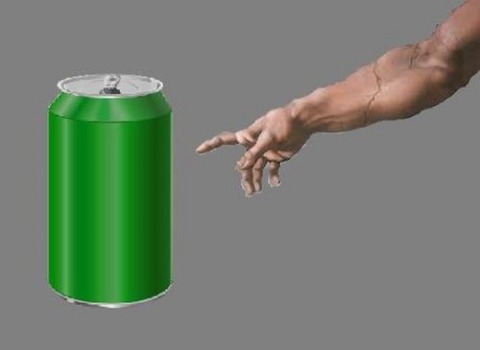
Query:
When I was an atheist, I used to do things like place a Coke can on a table and say, “God, I'm a mere mortal. I want to believe but I'm skeptical. Just move the Coke can six inches and I'll be your faithful disciple from this moment forward.” Why didn't God ever move the can? There must be a reason, but I can't fathom it. Why do you think he makes us ‘work’ for our faith? The confirmation of faith is always indirect and explainable in other ways.
Reply:
I think part of the answer lies in the fact that the personal reality of God is different than impersonal realities like the atomic mass of hydrogen or the ratio of the diameter to the circumference of a circle. I can know those kinds of facts, so to speak, from the outside. But I can only know a person, so to speak, from the inside -- something like the way I know myself. We shouldn’t overstate the distinction, because outside knowledge has a place in personal relationships. I came to know about my future wife while we were courting, and it was necessary to do so. But there was a difference between knowing about her and actually knowing her. In order to get over the gap from one level of knowledge to the other, I had to trust that what I believed about her was really true. It wasn't like having her stand next to a yardstick or putting her on a scale. Now you may say that since I had gone beyond evidence that can't be explained in another way, I knew less than before. Actually, I knew more. Knowing about her was the precondition for believing in her, but believing in her was the precondition for coming into contact with her reality in an entirely different way.
I think it is like that with all truly personal relationships. Some impersonal knowledge is necessary in all of them, but it isn't enough. One who seeks only impersonal knowledge can afford to say, "I know in order to believe." But at some point, anyone who seeks personal understanding must say with St. Anselm, "I believe in order to know." At this point, the new mode of knowledge begins.
In this life we groan in longing, because faith gives us only a foretaste of this different mode of knowledge. But it is a powerful foretaste. One of the apostles makes a remarkable observation about it in Hebrews 11:1. The passage is usually mistranslated so that it seems to say faith is the confidence of the things hoped for, the conviction of things not seen. But in Greek, the two key words don’t mean “confidence” and “conviction” at all. What the apostle is actually is that in faith we glimpse the actual substance of the things hoped for, and have the proof of things not seen. In heaven this glimpse rises to the level of vision, but it is evidential even now.
What I am suggesting is that the premise of the question is mistaken: I think the final evidence for God is profoundly direct, and not at all explainable in other ways.